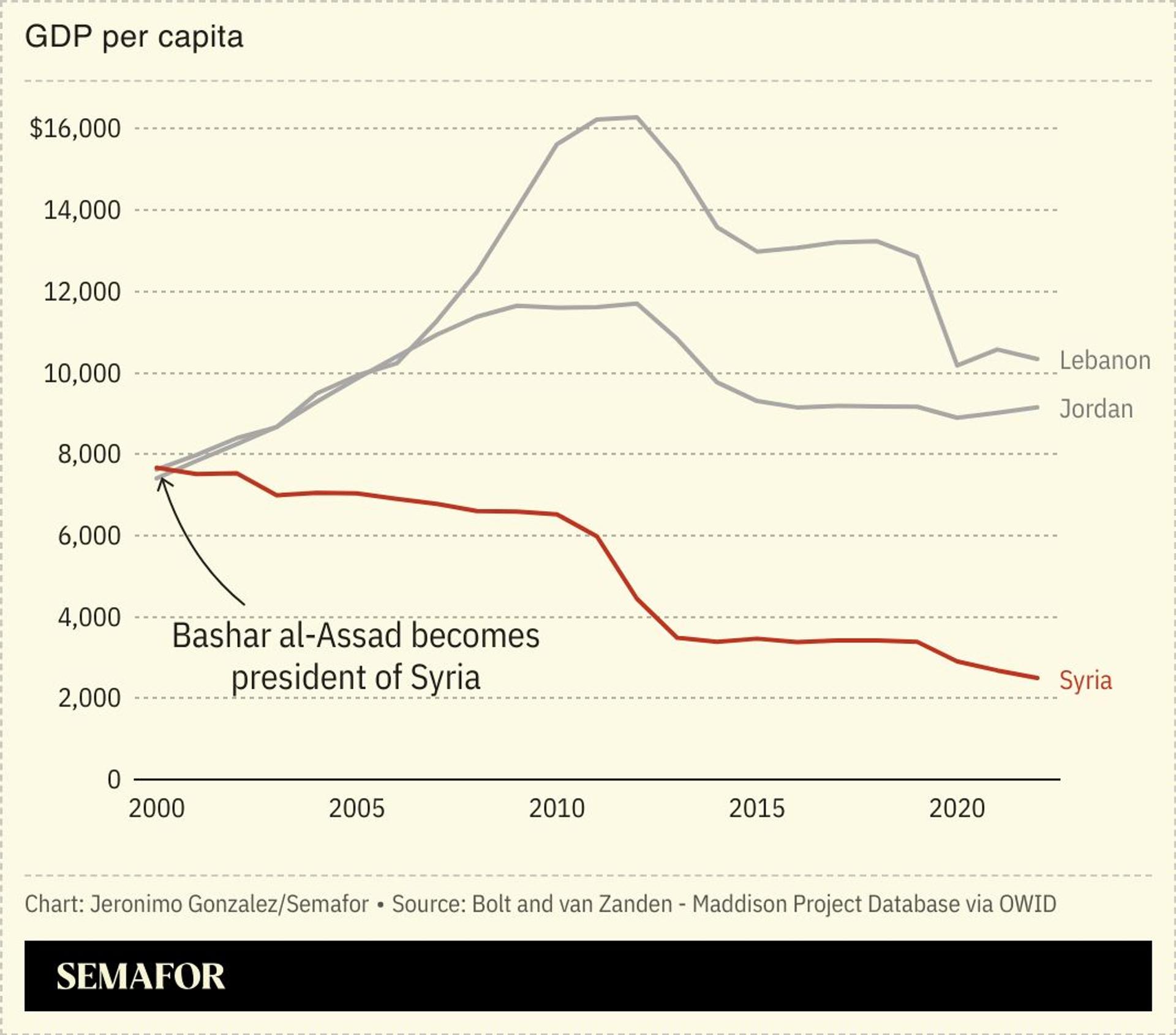The News
Syria’s new leaders were set to host a “national dialogue” aimed at charting the country’s future that they said would include some of their political opponents.
The meeting marks the latest in a series of optimistic developments, but also point to the challenges facing the country: The main Kurdish militia was not invited, and other groups which said the talks came with too little notice were also absent.
Still, positive signs abound: The European Union suspended some energy and transport sanctions to support Syria’s democratic development, while a small but growing number of Syrian Jews are returning, The Wall Street Journal reported, signaling confidence in authorities’ protection of minorities. “Welcome back,” one neighbor told a returning rabbi. “This is your home.”

SIGNALS
Syria’s new president makes inroads with foreign governments
Syria’s new president Ahmed al-Sharaa has repeatedly promised to be inclusive of minorities and to hold elections at some point, but many Western leaders remain unsure of the former Hay’at Tahrir al-Sham leader’s intentions. A Biden administration official who was among the first to meet al-Sharaa after the Assad Assad regime fell said he was either a “great actor” or a tactical pragmatist, eliding his jihadist background in the hope of early sanction relief, The New York Times wrote. Still, al-Sharaa is highly popular in Syria, and he has quickly been integrated into the region’s politics, with Egypt — a country wary of Islamist movements — inviting him to March’s Arab League summit.
Factionalism could yet undo Syria’s new leaders
The new Syrian administration’s success requires “balancing the need for central authority against the grievances of its many factions,” Syrian academic Rahaf Aldoughli wrote in New Lines Magazine. Maintaining the current harmony between the various former rebel groups that ousted Assad is “among the greatest… challenges facing post-war Syria.” Complicating the picture are world powers: Russia, the UAE, and US-backed forces have footholds in some regions, while Israel has pushed for more influence beyond the occupied Golan Heights. “From the perspective of the new Syrian leadership, freeing the country from the influence of all the foreign powers… is seen as vital to ensuring a more positive future for the country and a definitive break with the past,” the BBC wrote.

